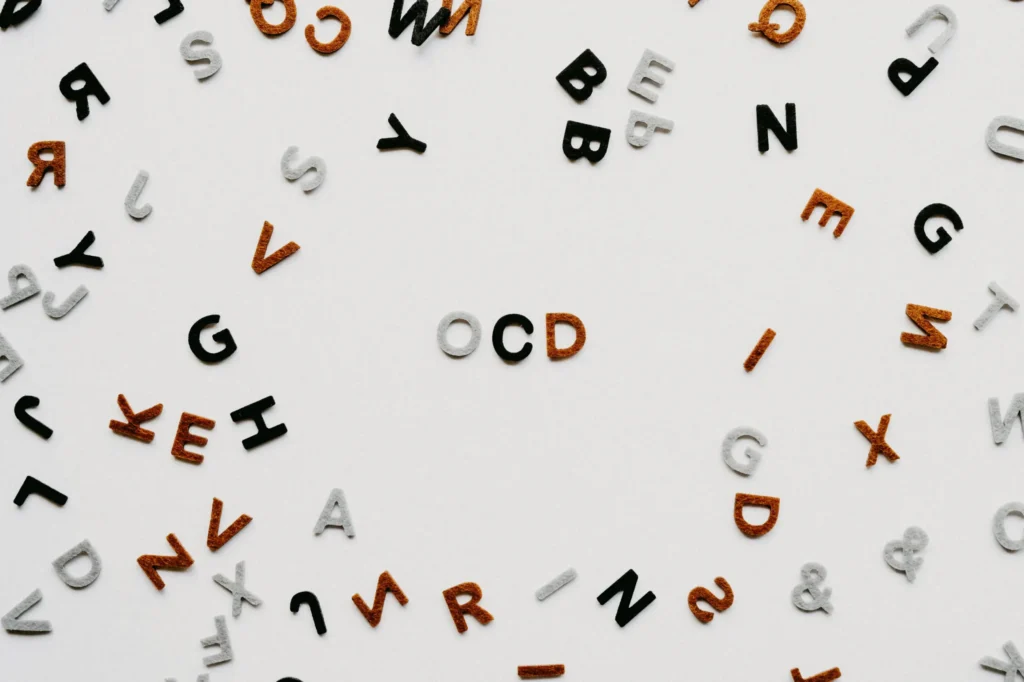Obsessive-Compulsive Disorder (OCD) is an anxiety disorder that causes people to have unwanted thoughts (obsessions) and feel the need to repeat actions (compulsions). OCD is often misunderstood and is more than just being neat or organized. When left untreated, it can seriously affect daily life. Recognizing the early signs and symptoms is important so that a person can get the right help.
Symptoms of OCD
People with OCD usually have both obsessions and compulsions, but sometimes, they only have one or the other. These symptoms can make it hard for someone to focus at school, work, or in social situations.
Obsessive Symptoms
Obsessions are thoughts or fears that a person can’t stop thinking about, even if they want to. Common obsessive symptoms include:
-
- Fear of germs or contamination: Worrying a lot about germs and avoiding touching things other people have touched.
-
- Need for order: Getting stressed if things are not perfectly arranged and feeling a need to fix them before moving on.
-
- Fear of harm: Being overly afraid of hurting yourself or others, even if there’s no real danger.
-
- Fear of making mistakes: Constantly worrying about doing something wrong, which can lead to avoiding people or asking for reassurance.
-
- Disturbing thoughts: Having unwanted thoughts about topics like violence, religion, or sex that cause distress.
Compulsive Symptoms
Compulsions are actions a person feels they must repeat to reduce the anxiety caused by their obsessions. Common compulsions include:
-
- Excessive cleaning: Washing hands or cleaning things much more than necessary.
-
- Repeated checking: Checking doors, stoves, or locks over and over to make sure everything is safe.
-
- Counting or repeating actions: Needing to count objects or repeat certain actions, like turning off a light, in a specific order.
-
- Organizing: Arranging things in a specific way and feeling unable to move on until everything looks perfect.
-
- Hoarding: Holding on to things you don’t need and being unable to throw anything away.
Recognizing the Signs of OCD
Recognizing OCD can be tricky because some people don’t realize their obsessive thoughts or compulsive actions are excessive. Over time, these habits can take up more time and make it hard to focus on other things. OCD symptoms also often overlap with other conditions like ADHD, making it harder to identify.
Diagnosing OCD usually involves a physical exam to see if your symptoms are caused by a health condition, blood tests to check for any imbalances or substances, and a psychological evaluation to understand your obsessions and compulsions better.
Risk Factors for Obsessive-Compulsive Disorder
OCD doesn’t have one single cause, but certain things can increase the chances of developing it, such as:
-
- Personal trauma: A stressful or traumatic event like a death or abuse can trigger OCD.
-
- Family history: Having family members with OCD or other mental health issues can increase your chances.
-
- Mental health conditions: OCD often shows up with other conditions, which can make it more complicated to diagnose and treat.
Co-Occurring Disorders
OCD often occurs along with other mental health problems, including:
-
- Substance use disorders
-
- Tourette syndrome
-
- Eating disorders
It’s important to recognize these conditions and treat them along with OCD for the best results.
Effective OCD Treatment Options
There’s no cure for OCD, but several treatments can help control symptoms and improve your quality of life. The right treatment plan can reduce both obsessive thoughts and compulsive behaviors, helping people feel more in control.
Cognitive-Behavioral Therapy
Cognitive-Behavioral Therapy (CBT) is a common treatment for OCD. It helps people notice when obsessive thoughts or compulsions happen and teaches them how to respond differently. This therapy encourages healthier thought patterns to reduce compulsions.
Exposure and Response Prevention
Exposure and Response Prevention (ERP) is a special type of CBT where people are slowly exposed to the things that trigger their anxiety. They then learn how to handle those triggers without doing compulsive actions. Over time, this reduces anxiety and gives people more control.
Medication
Doctors may prescribe medication, like antidepressants, to help reduce OCD symptoms. Medication can work well when combined with therapy and helps balance the chemicals in the brain that cause obsessive thoughts and compulsions.
Reach out to Arcara Psychiatry for OCD Treatment
If you or someone you know is struggling with OCD, Arcara Psychiatry can help. We offer personalized treatment plans that include therapy and medication to manage symptoms and improve everyday life. Contact us today to learn more about how we can support you on your path to better mental health.






